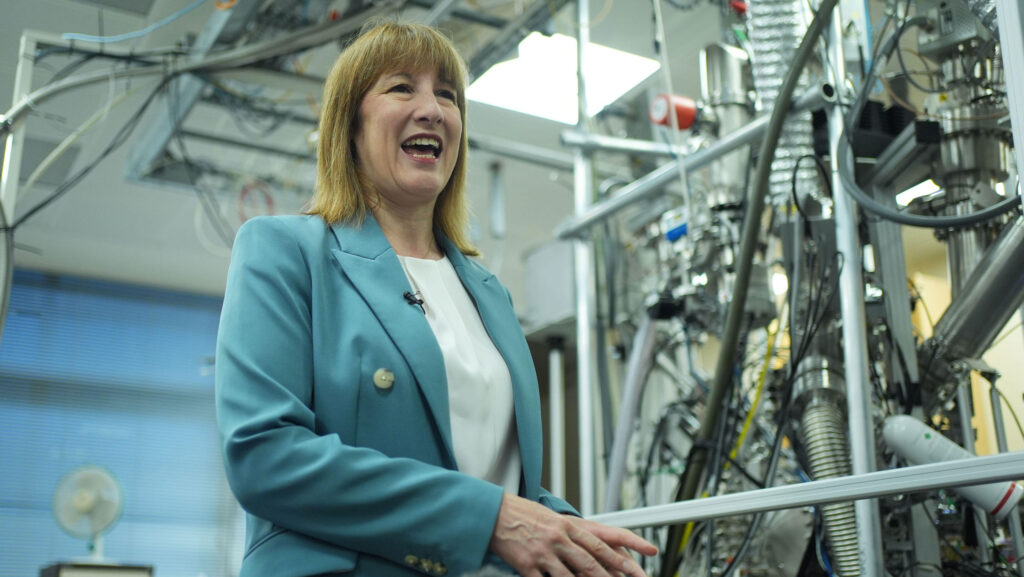UK Treasury dismisses threat to food security from IHT plans
 Chancellor Rachel Reeves © PA Images/Alamy Stock Photo
Chancellor Rachel Reeves © PA Images/Alamy Stock Photo Newly released Treasury papers have dismissed the suggestion that introducing inheritance tax (IHT) on agricultural assets from April 2026 will have a damaging impact on national food security.
Industry representatives and farmer bodies have frequently asserted that the so-called “family farm tax” will jeopardise farm businesses and damage the country’s ability to produce food.
The policy, they say, is at odds with the government mantra that “food security is national security”.
See also: Delay farm tax raid or risk rural ruin, MPs warn Labour
On Monday (21 July), the Treasury published draft legislation to implement the new IHT policy within a new Finance Bill 2025-26.
The details are essentially the same as revealed by chancellor Rachel Reeves in the last Autumn Budget – that Agricultural Property Relief (APR) and Business Property Relief (BPR) will be reduced from 100% to 50% on assets worth more than £1m from 1 April 2026.
This effectively means IHT will apply at a reduced rate of 20% above that threshold, but estates will be able to spread any charges equally over 10 years, free of any interest.
‘Limited impact’
The policy paper accompanying the draft regulation reiterates the Treasury’s view that not many claimants of IHT relief will be impacted.
Based on the number of claims for APR and BPR made in 2021-22 (the most recent data available), it suggests just 520 estates will pay more IHT in 2026-27, raising about £500m for the exchequer.
“This means almost three-quarters of all estates claiming agricultural property relief in 2026 to 2027, will not pay any more inheritance tax as a result of the changes,” it says.
These figures are viewed by the Treasury “as a maximum”, since they assume no further business restructuring or tax planning by farming families.
The paper offers no impact assessment, but it does comment on food security.
“Key aspects of UK food security include prices and physical availability, and changes to inheritance tax reliefs are not expected to have a material impact on either,” it says.
“Furthermore, changes to inheritance tax reliefs would not be expected to impact the UK’s ability to source imports from international markets.”
Response
That suggestion has been challenged by NFU president Tom Bradshaw who said the draft legislation fails on multiple scores.
Speaking at the Royal Welsh Show, he said the tax would hurt thousands of farming families and this was holding back investment.
“We know that the critical currency is confidence, and yet the farming industry has taken an absolute battering and confidence is at an all-time low,” he said.
“If we want food security for future generations, we need investment today.
“If we don’t invest in our farming businesses today, then future generations won’t have food security.”
Mr Bradshaw added that, despite the geopolitical situation and the fact supermarket shelves had been empty in recent times, politicians were taking food production for granted.
‘Clawback’ proposal
Mr Bradshaw again laid out the industry’s “clawback” proposal – only applying IHT if the subsequent generation choose to sell the farm assets rather than continue in farming – and expressed frustration that the Treasury is still rejecting the idea.
“Despite our persistent efforts, chancellor Rachel Reeves still refuses to meet us to discuss our alternative clawback proposal,” he said.
“The Treasury claims our solution will raise less revenue, but is refusing to release the modelling on how it came to this conclusion.”
Further reaction
TFA chief executive George Dunn also expressed disappointment that the government has not taken the opportunity to “finesse” its IHT proposals.
“At the very least, we need something for elderly and terminally ill farmers to be able to transfer their assets over shorter periods than currently exist with the legislation,” he said.
“We also need a solution for landlords who are prepared to let for long terms on secure agreement, so that they can have 100% relief from IHT on all of that land let over and above a 10-year threshold.“
